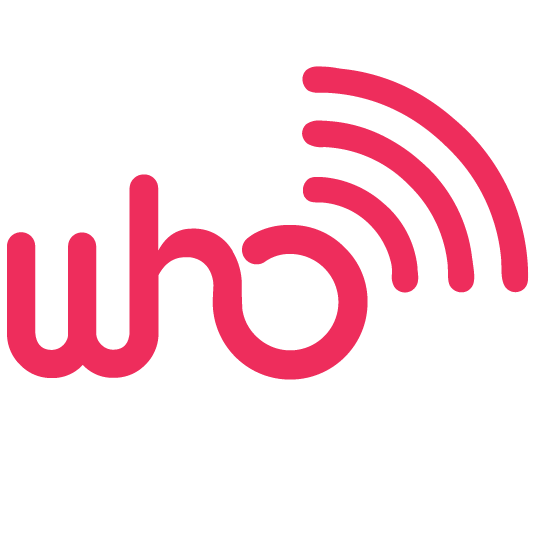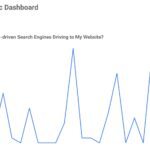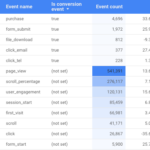When it comes to mastering PPC advertising, a comprehensive PPC guide for business-to-business (B2B) professionals can be an invaluable resource. This complex marketing strategy offers companies unique opportunities to reach target audiences and drive conversions that are profitable. However, executing a top-performing B2B campaign requires understanding the levers for adjusting and tuning the performance of a top-notch PPC campaign.
In this guide, we will walk through what exactly is PPC and why its targeted nature makes it so powerful. We’ll also cover how real-time performance tracking plays a critical role in your campaigns.
We’ll walk you through setting up your first campaign – from establishing clear goals to deciding on a budget and choosing the right type of campaign for your needs. SEO and PPC often work hand-in-hand and we’re going to highlight the importance of topics and keyphrases in running successful PPC campaigns.
Lastly, we will discuss why partnering with specialized agencies could potentially skyrocket your results and how you can choose one that fits your specific needs. After running advertising campaigns for over a decade, we know the limitations and opportunities for businesses to invest in pay-per-click ads.
Table Of Contents:
- Understanding Pay-Per-Click Advertising
- Setting Up Your First PPC Campaign
- Performing Keyword Research for PPC
- Implementing Your Campaigns Based On Goals And Budget
- Partnering With A Trusted Agency For Better Results
- FAQs in Relation to PPC Guide for B2B Companies
Understanding Pay-Per-Click Advertising
If you’re new to digital marketing, PPC advertising may seem complex. But once you get it, and if you know your target audience, it’s like finding the cheat code to reach customers and drive conversions and leads.
What is PPC?
PPC, or pay-per-click, is an online advertising model where advertisers pay each time a user clicks on their ads. Ads can take the form of text, images, or video. PPC can also be found on social media, other websites, and beyond search engines.
Note: Display ads that are based on impressions and not clicks are often lumped into the category of PPC ads. Technically, this is incorrect language since advertisers can pay by impressions or clicks. But, with new campaign types and assets reaching audiences across multiple platforms (from search engines to YouTube, to social) this is a more generic terminology that is easier to discuss.
The power of targeted online advertising
One major advantage of PPC is its ability to target specific demographics. Rather than marketing to everyone, PPC allows for a more granular approach of targeting individuals who are likely to be interested in your product or service. It’s like showing a vegan restaurant ad specifically to vegans near the location, rather than all food enthusiasts.
Real-time performance tracking with PPC Management
With PPC campaigns, you can track performance in real-time using tools like Google AdWords or Bing Ads Manager. You’ll know how many times your ad was clicked and if those clicks led to desired actions like purchases or sign-ups. We also recommend setting up a more integrated channel report such as in Google’s Looker Studio. This will allow you to compare the inputs and results of different marketing campaigns such as Social, Email, Organic, and Paid towards your goals.
Google’s Keyword Planner provides initial stats about keywords, competition level, and average cost per click. Their forecasts are often lower in costs than a fully mature campaign and leave out many keyphrases that would be excellent targets. We provide a real-time data analysis of advertising competitors in your target area to see who is advertising and on what phrases. It’s like having a crystal ball to make informed decisions for your campaigns. WHO Digital Strategy also uses other third-party tools and works with ppc software vendors too, offering advanced analytics software packages to fine-tune your strategies based on ongoing results.
Setting Up Your First PPC Campaign
Facing the prospect of your first PPC campaign may be daunting, yet with the right research and careful consideration it can be a great start to paid advertising.
We suggest Google Ads to start as the same campaign structure can be utilized in other channels such as Bing Ads with easy import/export features. It may be tempting to start with Google’s fully automated or “smart campaign” since all the suggestions come from automation. But you may be reducing your ROI as Google tends to oversimplify the setup and reach beyond your target market. With some planning and strategic thinking, (you know your market best) it’s totally doable to create a campaign that you control.
Here are the key steps to get you started with ppc ads:
1. Establish Clear Campaign Goals
The first step in any successful PPC campaign is setting clear goals. What do you want to achieve? More website traffic? More conversions? Having specific objectives will guide every decision that follows. Make sure these goals align with your overall business strategy, so all efforts contribute to common aims.
2. Decide On a Suitable Budget
Your budget determines the scope and reach of your PPC campaign. The good news is PPC advertising allows for flexible budgets, so businesses of all sizes can use it. Consider factors like cost per click (CPC), daily spend limits, and conversion value when deciding on a budget.
- CPC: How much you pay for each ad click.
- Daily Spend Limits: Prevents you from going over budget.
- Conversion Value: Understand the financial impact of each conversion.
3. Choose the Right Campaign Type and Channel
Selecting the right campaign type and channel depends on where your target audience hangs out online and how they prefer to interact. Different types include search campaigns, display campaigns, shopping campaigns, etc., while channels could be Google Ads, Bing Ads, and more.
- Paid Search and Display Ads: If your customers are searching for answers or trying to find you by location, running targeted paid advertising campaigns can be very effective.
- Social Media Channels: If your potential customers are most active on platforms like Facebook or LinkedIn, running targeted ad campaigns there will yield better results.
- Video Marketing: If users look for solutions and inspiration via video, running ads in these channels can be effective. Bonus, you don’t need video to run ads in video channels!
By understanding these fundamentals before creating ads, marketers can improve the speed at which the campaigns can be tuned for a higher return on ad spend (ROAS).
Setting up your first PPC campaign can be intimidating, but with clear goals and a suitable budget in mind, it becomes manageable. Choosing the right campaign type and channel based on where your target audience is active online will increase the chances of achieving desired outcomes quickly.
Performing Keyword Research for PPC
In the world of pay-per-click (PPC) advertising, keyword research is key. It’s not just about picking words related to your stuff; it’s about understanding what customers want and aligning your campaigns with those needs.
Importance of Keyword Research in PPC
Keyword research is the backbone of successful PPC. The right keywords drive targeted traffic, boost conversions, and maximize ROI. They connect businesses with potential customers who are actively searching for solutions online.
A PPC campaign’s success depends on how well you use these ‘connectors’. A bad keyword may get clicks but few conversions if it doesn’t match user intent. A well-researched keyword attracts interested prospects ready to take action.
Tools & Techniques For Effective Keyword Selection
Finding effective keywords takes time, effort, and specialized tools. One popular tool is Google’s Keyword Planner. It provides insights into search volume trends for specific terms over time and across regions.
- Broaden Your Scope: Don’t limit yourself. Consider synonyms, related queries, and questions people may ask about your product/service.
- Analyze Competitors: Use tools like SEMrush to see what keywords competitors rank for.
- Niche Keywords: Long-tail keywords specific to your niche have less competition but still drive relevant traffic.
- User Intent: Understand whether users want information (‘know’), visit a local business (‘go’), make an online purchase (‘do’), or find a website (‘website’).
- Trends: Stay up-to-date with industry trends using resources like Google Trends.
Selecting appropriate keywords isn’t just about attracting visitors, it’s about attracting the right kind of visitors who will engage and convert. Thorough keyword research before launching your PPC campaigns sets you up for success from day one.
Implementing Your Campaigns Based On Goals And Budget
Navigating the digital marketing landscape necessitates having a well-crafted strategy. Setting goals and targets for budgeting are essential when it comes to guiding your PPC campaigns. It will allow you to chart a course for profitable ads.
How goal-setting influences implementation choices
Your campaign goals shape how you implement PPC strategies. Want brand awareness? Impressions are your jam. Need leads? Keep an eye on cost-per-lead (CPL). It’s all about aligning your tactics with your objectives.
Make smart choices about ad placement, keywords, and bidding strategies to hit those goals.
Consider the long-term value of a customer or lead. Not only do you get a potential customer that leads to a sale, you also have more brand exposure, can drive traffic for future events with remarketing, and build lists that can be nurtured for future sales and leads. Once you have a clear idea of the long-term value of a customer, decide how much you are willing to dedicate in advertising for each conversion. This will provide a basis for your ad budget.
Balancing high-performance strategies with budget constraints
We all have budget limits, but that doesn’t mean we can’t rock the PPC game. Here’s how:
- Narrow down targeting: Refine your audience parameters for fewer but better leads. It’s like finding a needle in a haystack, but with less hay.
- Focused keyword bidding: Forget the expensive keywords. Go for the long-tail ones that bring in relevant traffic without breaking the bank.
- Schedule ads strategically: Time it right. Show your ads when your potential customers are online. It’s like catching fish when they’re biting.
Combine these techniques with regular monitoring and optimization to make the most of your resources. It will take the most time and effort in building and establish the guardrails for your campaign in the early months after launch. As the campaigns mature, you can add in other targets and continue refinements for better returns.
Partnering With A Trusted Agency For Better Results
If managing a PPC campaign feels like juggling flaming swords with dollar bills on the end, consider partnering with a trusted agency. They’re the superheroes of managing pay-per-click ads, saving you from the complexities of constant campaign management and wondering if you are making the right moves.
With our proficiency and background, we can assist your business in attaining exceptional results by doing it for you, or training in a do-it-with-you fashion.
Aligning tactics with objectives, making smart choices about ad placement and bidding strategies, and balancing high-performance strategies with budget constraints are all part of setting up paid advertising. Additionally, partnering with a trusted agency to navigate the complexities of campaign management may bring better results.
Why Partner with Specialized PPC B2B Professionals?
If this guide makes it sound pretty easy, why should you work with an external agency for PPC needs? Well, here are a few compelling reasons:
- Expertise: Specialized agencies have dedicated teams who live and breathe PPC. They stay updated on industry trends and algorithm changes, delivering top-notch results.
- Economical: Hiring an agency can actually save you money in the long run. They optimize your campaign’s performance, leading to better ROI.
- Data Analysis: An experienced PPC management team knows how to interpret complex data sets and turn them into actionable insights for better decision-making.
Selecting a PPC Agency That Fits Your Needs
Discovering the correct partner isn’t just about ticking off boxes; it’s about discovering somebody who comprehends your business objectives and is consistent with your organization’s culture. Here are some tips for selecting a suitable partner:
- Determine what services you need: Do you require full-service management or just assistance setting up campaigns? This will help narrow down potential partners.
- Vet their experience: Ask prospective agencies about their track record, including case studies or client testimonials.
- Pricing structure: Understand how the agency charges for its services, whether it’s a flat rate, percentage of ad spend, or performance-based pricing.
- Cultural fit: The best partnerships happen when both parties share similar values and communication styles.
FAQS FROM Your PPC GUIDE FOR B2B COMPANIES
How to Use PPC with B2B Marketing?
In B2B marketing, you can use PPC to target specific industries or companies, and specific geographic areas, promote your products or services directly to decision-makers, and track the effectiveness of your campaigns in real-time.
What is PPC in B2B Marketing?
PPC, or Pay Per Click, in B2B marketing is a model where advertisers pay each time their ad is clicked by an online user. It’s used for driving direct traffic and generating leads.
Is PPC Good for B2B?
Absolutely. PPC allows precise targeting and immediate exposure, making it highly effective for lead generation in the competitive business-to-business (B2B) market space.
Final Thoughts on Paid Ads for B2B
This PPC guide for B2B provides valuable insights into pay-per-click advertising and its benefits for marketing professionals.
Understanding the fundamentals of PPC, setting clear campaign goals, performing effective keyword research, and implementing campaigns based on budget constraints and performance metrics can help marketers optimize their advertising efforts to reach their target audience more effectively.







